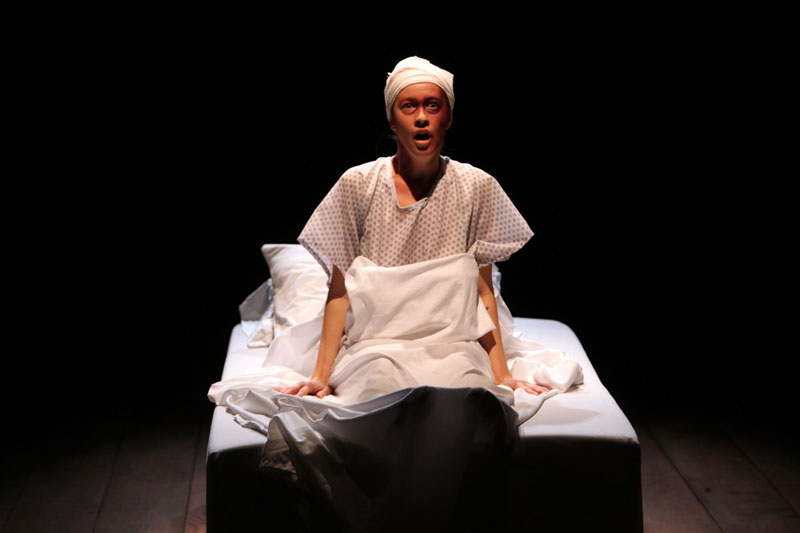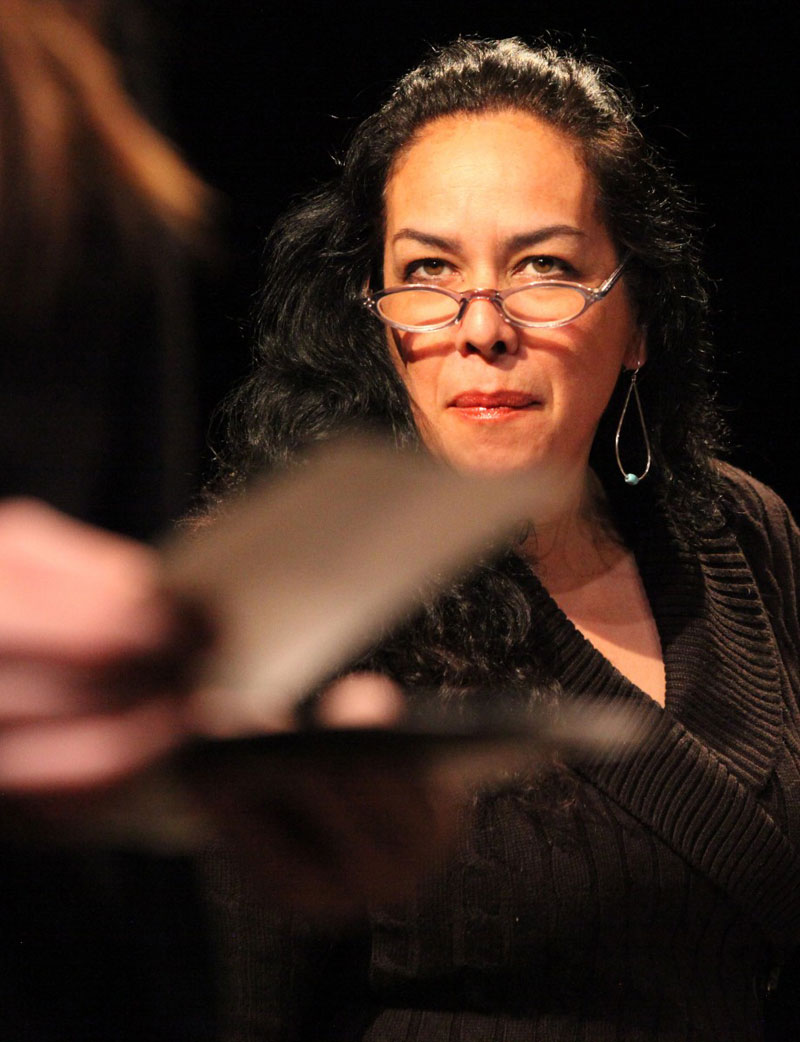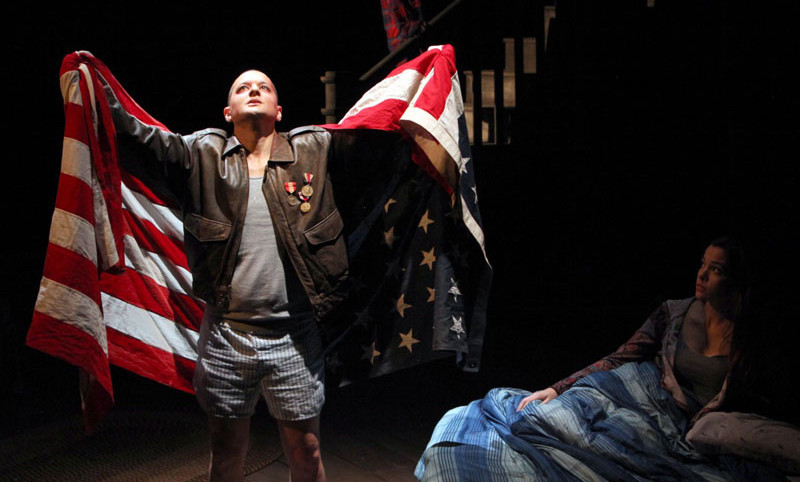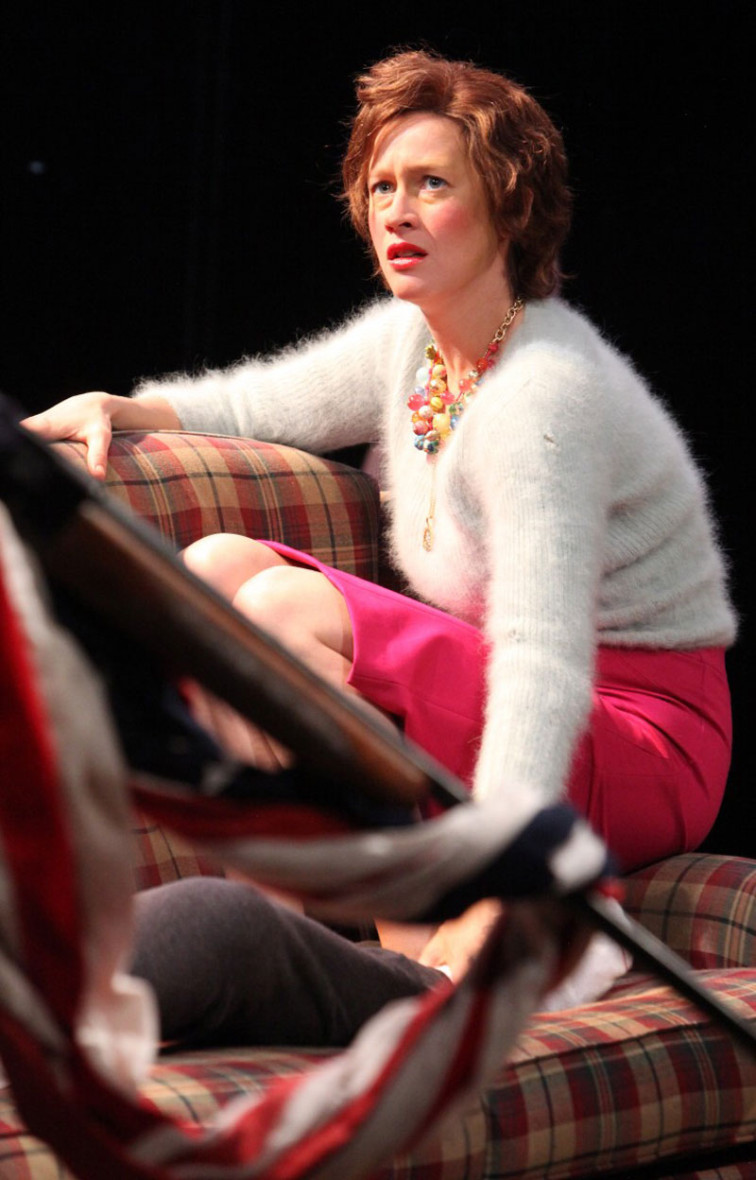San Francisco’s Magic Theatre has had a long history with Sam Shepard. In 1971, the theatre staged its first Shepard play, La Turista. Starting in 1975, Shepard was playwright in residence for ten years at the Magic, where he premiered many of his seminal plays, including Buried Child, True West and Fool for Love.
Kicking off with Shepard’s 70th birthday in 2013, the Magic has been celebrating his work with a five-year “Sheparding America” project that started with a revival of Buried Child helmed by Magic artistic director Loretta Greco. Now Greco is teaming up with a couple of the same actors (James Wagner, Elaina Garrity) to take on another Shepard classic.
Although it dates from around the time of the end of his residency, A Lie of the Mind has never played the Magic until now. It’s a very strange play about very strange people from two very different but similarly messed-up families, united by marriage and violence.

The story starts shortly after a husband beats his wife so severely that he thinks he’s killed her. We see the young wife. Beth, awaken in a hospital, brain-damaged and speaking partly in gibberish. Disturbingly, the incident is played for humor in a farcical conversation that follows between the husband, Jake, and his brother Frankie. Jake’s paranoid rant about how he could tell Beth, an actress, was cheating on him could feel menacing; he’s already demonstrated how dangerous he can be. But Sean San Jose’s twitchy Jake is like a young boy having a tantrum. Frankie, the concerned brother played by Juan Amador, tries to find out exactly what happened, but the the goofy faces Amador keeps making turn the conversation into a grim Abbott and Costello routine.
Jessi Campbell’s Beth is terribly affecting in her zoned-out distress, furiously frustrated and terrified for reasons she can’t articulate. Jake, too, becomes feverishly delirious and borderline amnesiac, retreating to his childhood bed where his mother is only too happy to take care of him. In a parallel move, Beth goes back to recuperate with her parents in Montana. The rest of the play moves back and forth between these two families caring for their broken children, sometimes showing both houses at once on opposite sides of Robert Brill’s simple but versatile set of a bare wooden floor tilted toward the audience.

But the parallels don’t end there. Everyone in the play is deranged and miserable—except Jake’s sister Sally, who’s just exasperated as played by Garrity. Catherine Castellanos as Lorraine, Jake’s mother, is pathologically self-absorbed in her brusque dismissal of any truths about her family that don’t fit her own embittered narrative. She babies her returned son even as she tries to shoo her daughter away as an interloper. Ultimately you can see that Jake’s raving paranoia runs in the family.



